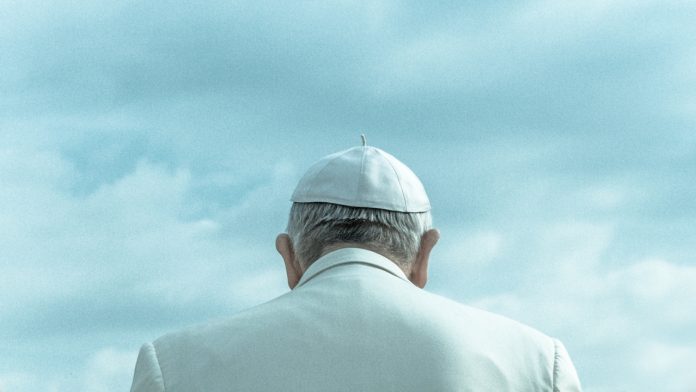Pope Francis urged the world not to forget the ongoing suffering of the “martyred” people of Syria on the eve of the 10th anniversary of the start of the Syrian war.
“Ten years ago, the bloody conflict in Syria began, which has caused one of the most serious humanitarian catastrophes of our time,” Pope Francis said after the Angelus prayer on March 14.
Speaking from the window of the Apostolic Palace, the pope said that the decade-long war in Syria has left “an unknown number of dead and wounded, millions of refugees, thousands disappeared, destruction, violence of all kinds, and immense suffering for the entire population, especially for the most vulnerable, such as children, women, and the elderly.”
Pope Francis prayed for an end to the conflict and a renewed commitment from the international community for rebuilding efforts.
“I renew my heartfelt appeal to the parties to the conflict that they show signs of good will, so that a glimmer of hope can open up for the exhausted population,” he said.
“I also hope for a decisive and renewed commitment that is constructive and supportive from the international community, so that, once arms have been laid down, the social fabric can be mended and reconstruction and economic recovery can begin.”
March 15 is considered to be the start of the Syrian war. The conflict began in 2011 when demonstrations sprang up across the country protesting the rule of Bashar al-Assad, Syria’s president and leader the country’s Ba’ath Party. In April of that year, the Syrian army began to deploy to put down the uprisings, firing on protesters.
The civil war has been fought among the Syrian regime and a number of rebel groups. The rebels include moderates, such as the Free Syrian Army; Islamists such as Tahrir al-Sham and the Islamic State; and Kurdish separatists.
Russia and Iran have been supportive of the Syrian regime, while western nations have favored some rebel groups.
Cardinal Mario Zenari, the Vatican’s diplomat in Syria for the past 13 years, has said that after nearly a decade of war, the Syrian people had now been hit with a “poverty bomb” amid the coronavirus pandemic.
Eight in 10 people in Syria live below the poverty line with an estimated 11.1 million people in need of some form of humanitarian assistance, including 4.7 million people in acute need in 2020, according to Caritas Internationalis. Children, pregnant women, people with disabilities, and the elderly are the most at risk.
The World Bank estimates that the country has suffered at least $197 billion worth of infrastructure damage during the conflict.
According to UNHCR, the UN Refugee Agency, more than 5.6 million people have left Syria since 2011.
The majority of refugees stayed in the Middle East, with more than half registered as living in Turkey (3.6 million in 2021) and another 1.6 million refugees also living in either Lebanon or Jordan, which also border Syria. Within Syria itself there are 6.7 internally displaced persons.
“Let us all pray to the Lord that so much suffering in beloved and tormented Syria will not be forgotten and that our solidarity revives hope,” Pope Francis said.
In his Angelus address, the pope offered a reflection on a line from the Gospel of John: “the light came into the world, but people preferred darkness to light.”
Pope Francis said: “The coming of Jesus into the world causes a choice: whoever chooses darkness faces a judgment of condemnation, whoever chooses light will have a judgment of salvation.”
“Judgment is always the consequence of each one’s free choice,” he said. “Whoever practices evil, seeks darkness. Evil always hides itself, covers itself. Whoever does the truth, that is, does the good, comes to the light, illuminates the paths of life.”
The pope underlined that this is what Christians’ Lenten commitments are for: “to welcome the light into our conscience, to open our hearts to God’s infinite love, to his mercy full of tenderness and goodness, to his forgiveness.”
He added: “Do not forget that God always forgives, always, if we humbly ask for forgiveness. … Thus we will find true joy and be able to rejoice in God’s forgiveness which regenerates and gives life.”
At the end of the Angelus prayer and reflection, Francis looked ahead to the feast of St. Joseph on which “a special year to grow in love within the family” will begin.
The “Year of the Amoris Laetitia Family” is an “invitation to a renewed and creative pastoral impulse to put the family at the center of the attention of the Church and of society,” the pope said.
“I pray that every family may experience in their own homes the living presence of the Holy Family of Nazareth, which will fill our small domestic communities with a sincere and generous love, a source of joy even in trials and difficulties.”














